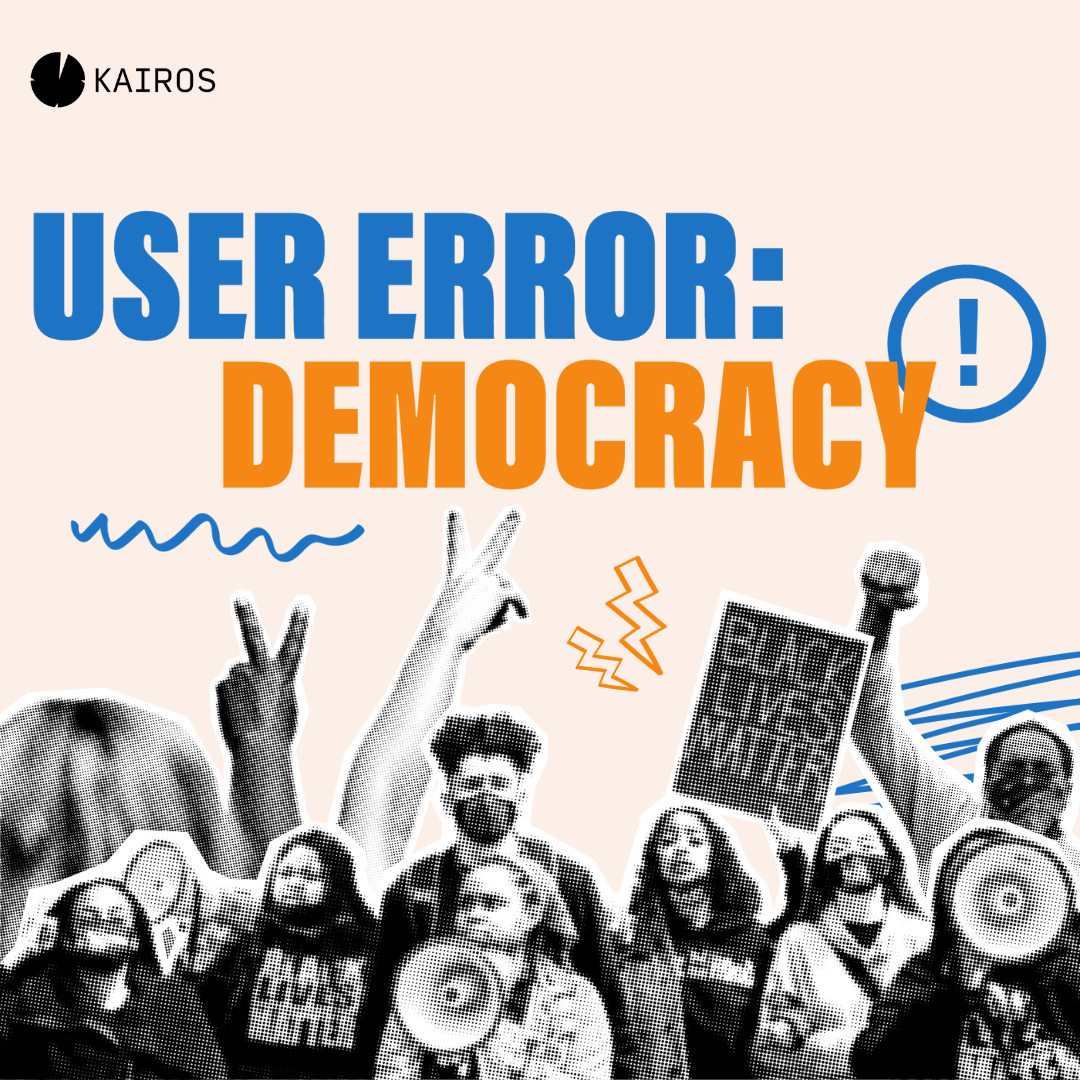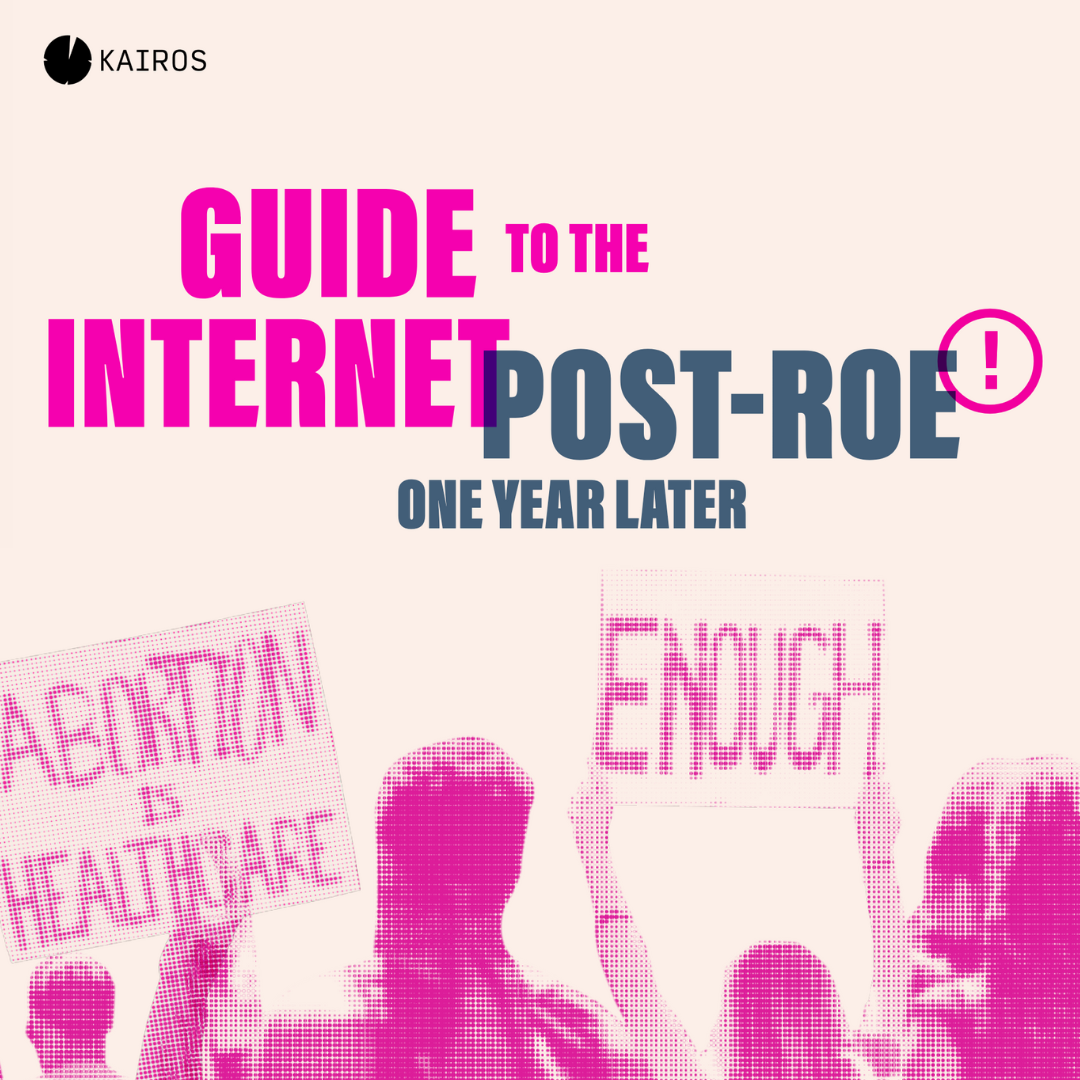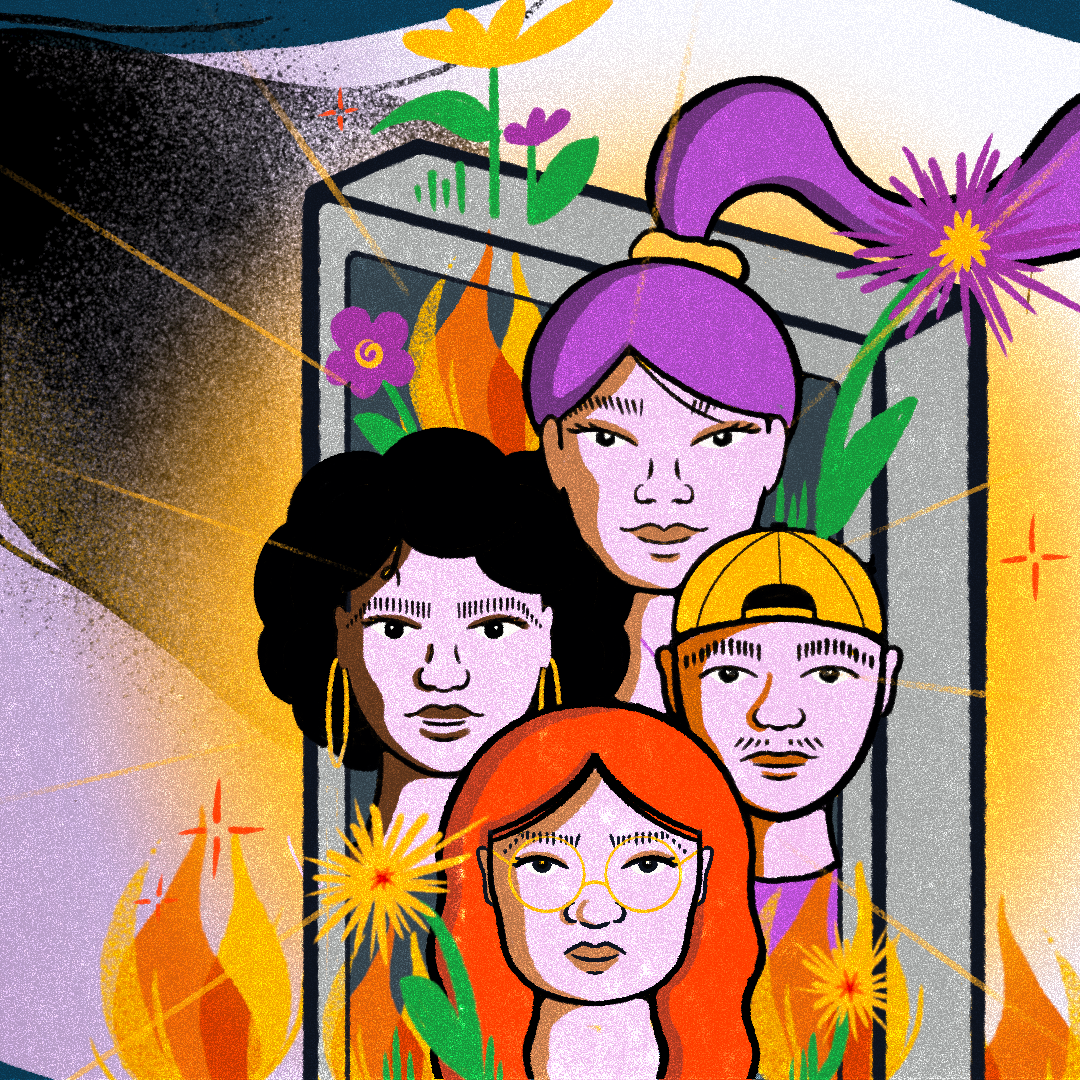Queer and trans people have always made community in environments that seemed impossible.
Queer and trans people have been innovators in creating safety when the mainstream world was not concerned about them. Much of what we know about transformative justice is built from queer folks’ understanding that “we keep us safe” in the face of state violence and antagonism, and citizen-level violence where the state has turned a blind eye.
This is also true online. Queer people have been essential to how the early internet came together and have taken tools that have not always been designed for them and transformed those tools into resources without compromising the values that keep people safe.
The people who run internet platforms make decisions that make queer communities less safe and less able to connect. Privacy, content moderation, and protecting LGBTQ+ people and other marginalized communities has also never been a concern for Big Tech companies. And their business models facilitate extreme hate speech and massive amounts of data collection that are used against queer and trans people.
In this report we will explore the history and the current issues facing the LGBTQ+ community online and what an internet that values queerness and queer people can look like. Click here to read and download the report.
So you thought this was going to be yet another report on disinformation and elections. In some ways, you’re not wrong. But wait, wait, don’t stop reading.
We have to talk about the internet.
Democracy around the world is in a precarious position and has been for a long time. From voter suppression to a literal insurrection bolstered by an outgoing president, we’re fighting for a functioning democracy that will actually serve the majority of people in the United States. And all of this is on particularly difficult terrain.
This terrain is not just a physical one—it is online.
Unlike our physical world, the internet has no borders and no government. It is dominated by profit-driven private companies led by CEOs who have made it clear that they value padding their pockets over people’s safety. We have to see our online and digital spaces as a part of the terrain we’re fighting on. This report will dig into Big Tech’s influence on democracy and what a strategy for taking on pro-democracy fights online looks like. Click here to download the report and learn more.
We all deserve to live somewhere that is safe, healthy, and comfortable, in a neighborhood where we feel connected and secure. Yet a few money-hungry groups—corporate landlords, big banks and private equity firms, technology companies, and racist police and security forces—are teaming up to line their own pockets by taking secure housing away from people who need places to live.
The rise in technology developed specifically for the housing sector is an often unexplored factor in making housing less accessible and accelerating the harms that already exist.
In this report we will define this growing field of “Landlord Tech,” describe some of the major players, and highlight a few fights that exhibit what’s possible in working for housing justice through a lens of landlord technology. Protecting each other requires collective action; we will explain how here. Click here to download and read more.
The climate crisis is one of the biggest existential threats humans face. A changing climate is already accelerating catastrophic weather, threatening our food supply, and rendering once thriving communities unlivable. And the sooner we curb greenhouse gas emissions, the better the outcome for future generations.
The fight for a livable climate is a fight against corporate power that promotes fossil fuel dependency as advanced and paid for by oil, gas, and other extractive industries over human good, and a fight against resource and wealth hoarding by wealthy nations at the global majority’s expense. These forces have strong motivations to break our movements for climate action, and Big Tech is happily playing along, by offering pro-climate rhetoric but no action, platforming fossil fuel propaganda, and via investments in harmful false solutions.
This report explores tech’s interactions with the forces described above to undeniably feed the climate crisis. Click here to read and download the report.
Our digital spaces are imperfect havens.
Sometimes life's most difficult questions get answered there, sometimes we slip and share something vulnerable and are met with open arms, and sometimes we find corners we wish we’d never visited.
On June 24, 2022, the Supreme Court of the United States overturned Roe v. Wade stripping away reproductive freedom from any person who can get pregnant.
Within days it became clear that supporting reproductive justice in our current post-Roe reality faced a familiar threat: the corporations that govern our digital spaces collect and store data that law enforcement can use to punish those seeking reproductive care.
In this report, we outline the ways that Google and Meta (formerly Facebook) have aided and abetted the restriction of abortion access to people seeking care. Click here to read the report.
Looking for our other work on User Error: The Internet Post-Roe?
Check out our 2023 update + resources and anniversary art drop below. And if you missed our panel conversation you can watch that here or read the recap here.







